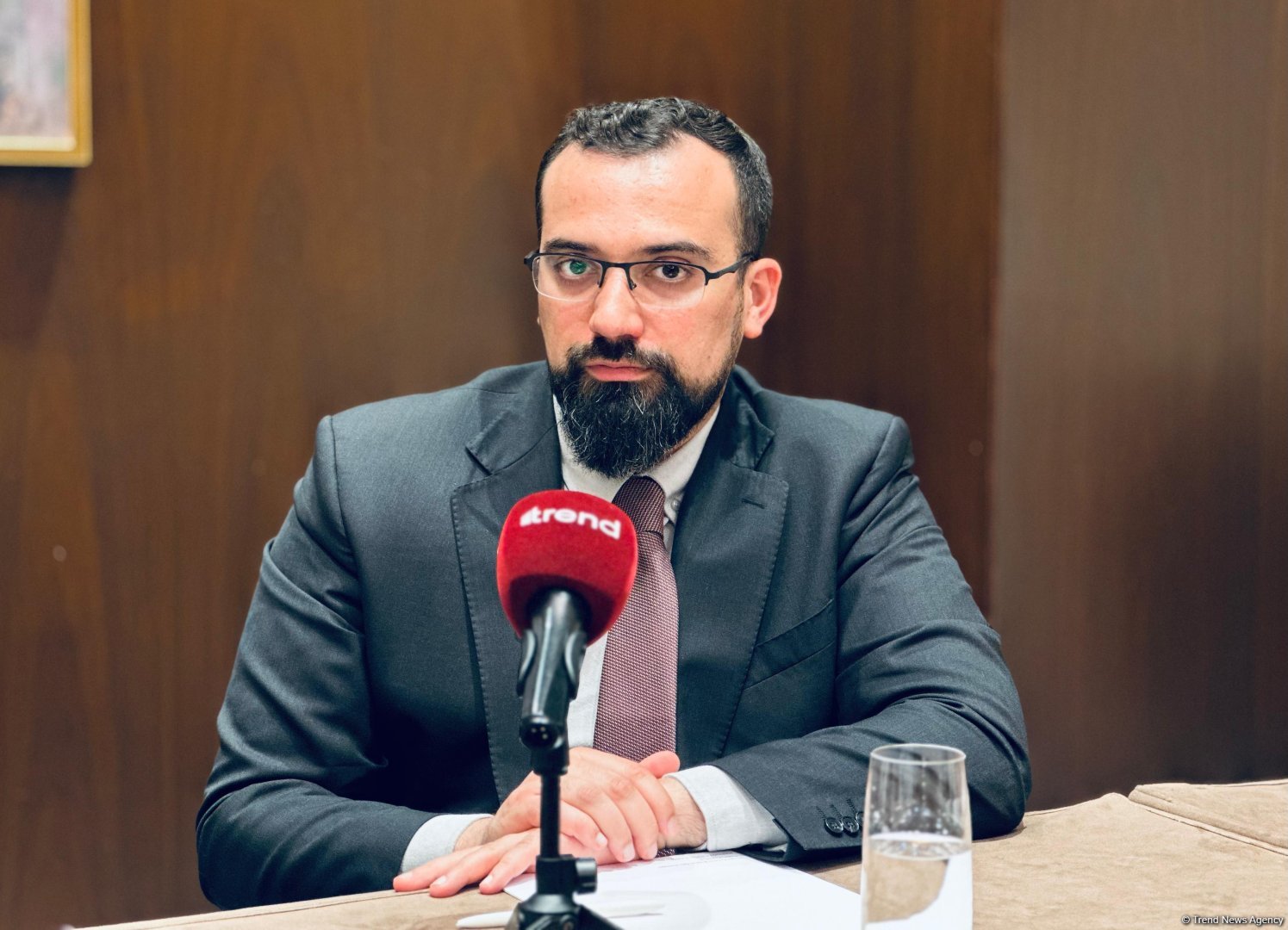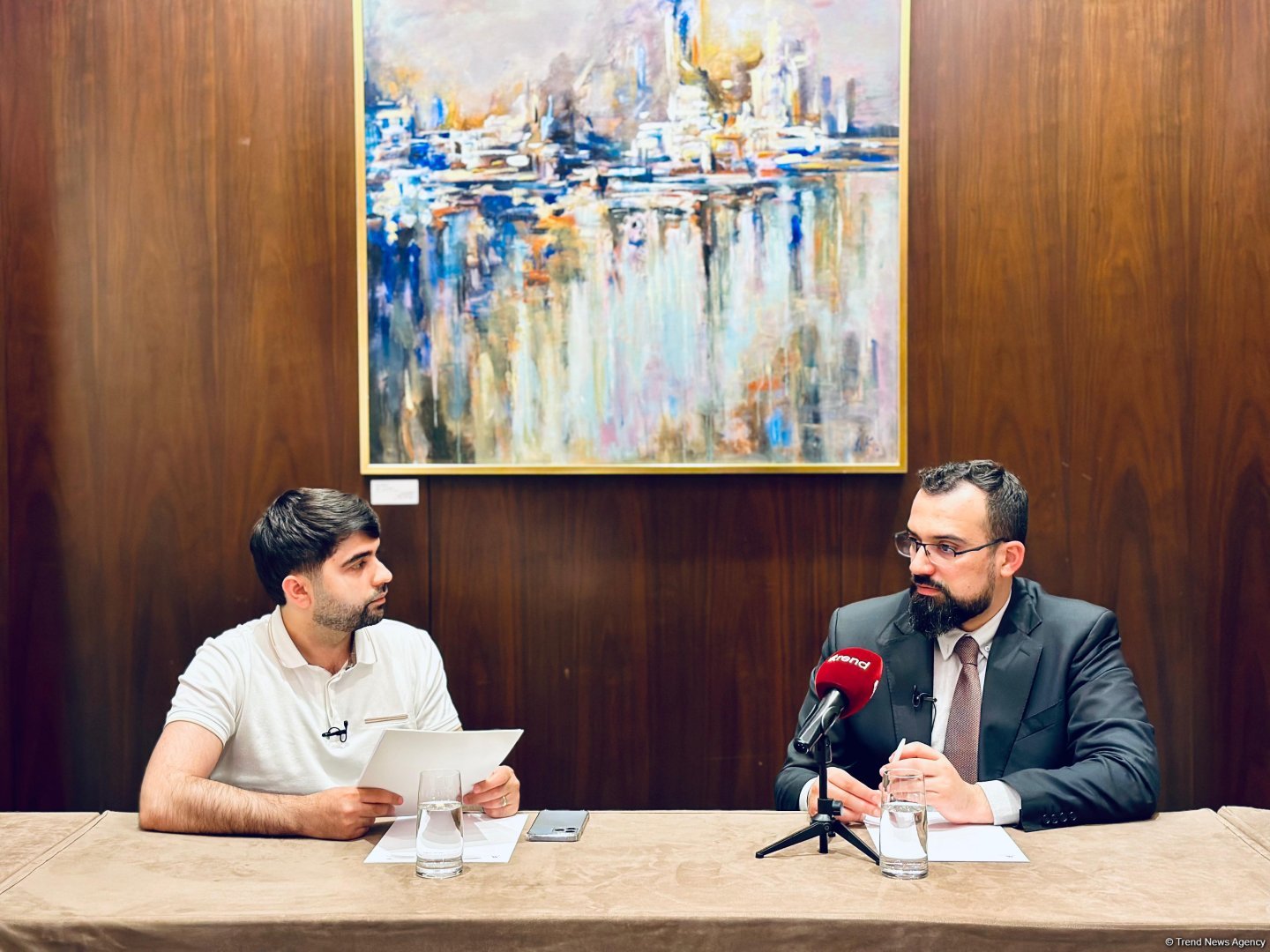BAKU, Azerbaijan, May 31. Digital assets should capture the interest of companies seeking investment opportunities, Head of Advisory Services at PwC Farid Gattal told Trend in an exclusive interview.
“Digital assets, a relatively new term, can be categorized into five main groups: cryptocurrencies, stablecoins (cryptocurrencies linked to a specific fiat currency), NFT tokens, security tokens (STO), and central bank digital currencies (CBDCs). CBDCs have been approved in four countries to date, with many others actively developing them,” the advisory head said.
According to him, each of these groups of digital assets has its own potential and development path.
“Cryptocurrencies, like Bitcoin, are the most familiar to the general public. Bitcoin, now 15 years old, is not tied to any country, making it an international phenomenon. Today, the cryptocurrency market holds immense value, providing opportunities for investors to earn and attract investments. The potential of digital assets stems from their creation within the digital space. Transferring money through a decentralized blockchain architecture offers significant time and cost savings, along with increased transparency and traceability throughout the value chain. These clear benefits are propelling the development of digital assets,” Gattal said.
He emphasized that each country is looking for its own unique path and target picture of how digital assets can positively impact the economy.
“Digital assets should primarily interest companies seeking to attract investment, as they offer rapid access to financing. Small and medium-sized enterprises (SMEs) can quickly issue their own cryptocurrencies, go public, and raise capital. These instruments can act as catalysts for investment growth, which is particularly pertinent for Azerbaijan, where investments mainly come from medium and large businesses operating on traditional principles,” he said.
According to Gattal, successful state-level examples of digital currency use include Kazakhstan, Nigeria, and Jamaica.
“Currently, around 10 countries are piloting digital currencies, aiming to enhance the efficiency of remittances and money issuance. Digital money is viewed as a digital counterpart to fiat currency, offering various advantages. For businesses and the economy, these benefits include an improved investment climate and reduced costs for financing and remittances, which are particularly appealing to large companies. However, cross-country integration of digital assets remains limited due to varying national regulations. It is simpler to operate within a country that already permits the use of such assets.
For instance, the European Union enacted a law regulating the digital asset market in 2023. Key principles of this regulation include mandatory licensing for issuing and trading cryptocurrencies, identity verification for wallets holding more than a thousand euros, and a ban on anonymous transfers. While these rules primarily apply to cryptocurrencies rather than central bank digital currencies, they provide a regulatory framework example,” he added.
The advisory head highlighted that many countries, including Azerbaijan, are currently working on developing legislation in this area.
"Many questions arise, such as whether digital currency should be classified as a foreign currency or a financial instrument. This process will take another 5–10 years as market requirements and conditions evolve. Countries are learning from each other through their attempts. For instance, the UK launched its own digital currency, Bitcoin, but it has seen little use and is now virtually obsolete. There are both successful and failed examples, but no unified reference models yet," he noted.
Gattal emphasized the need for a clear strategy to create a favorable environment for the adoption and use of digital assets in Azerbaijan.
"When drafting new laws, it is crucial to understand our objectives. What is the strategy? Which of the five types of digital assets do we want to develop, and in what direction? What should it impact? If the goal is to improve the investment climate, we need to develop tools to raise money through digital assets. Introducing a digital manat, for instance, could stimulate processes like interbank transfers, effectively becoming inter-corporate transfers. Strategy is key. Based on this, we need to update and improve the tax and legislative framework," he said.
Gattal also noted that this is not the only requirement; there are infrastructural conditions that are essential for the successful introduction of digital assets.
“The availability of digital media and the penetration of digital technologies in society are essential. Citizens, companies, and users must have access to the necessary resources. First, there must be access to high-speed internet. Second, digital literacy among the population is crucial. Third, access to smartphones is necessary. These conditions are particularly important for the retail segment, where end users are ordinary citizens.
For the corporate segment, clear legal provisions are vital. The legal framework, infrastructure, and strategy should be designed to achieve specific goals, considering integration aspects as well. Cross-country instruments based on digital assets may emerge within associations and unions, significantly saving time and money on transfers.
Such developments are already underway; for instance, Kazakhstan is making notable progress in this area. Currently, transferring money from one country to another can require passing through 5–6 different locations, which is time-consuming and costly. In this context, digital assets hold substantial interest,” concluded Gattal.
To note, central bank digital currencies have already been introduced or are under development in several countries, including Sweden (e-krona), China (e-CNY), Hong Kong (e-HKD), Nigeria (eNaira), Russia (digital ruble), Ukraine (electronic hryvnia), Belarus (digital Belarusian ruble), Georgia (digital lari), Kazakhstan (digital tenge), India (digital rupee), the US (digital dollar), the UK (digital pound), Brazil, Türkiye (digital lira), Japan, Thailand, Australia, and countries of the Eastern Caribbean Currency Union (DCash). Additionally, Jamaica has introduced the digital Jamaican dollar, and the Eurozone is preparing for the introduction of the digital euro by the European Central Bank.














